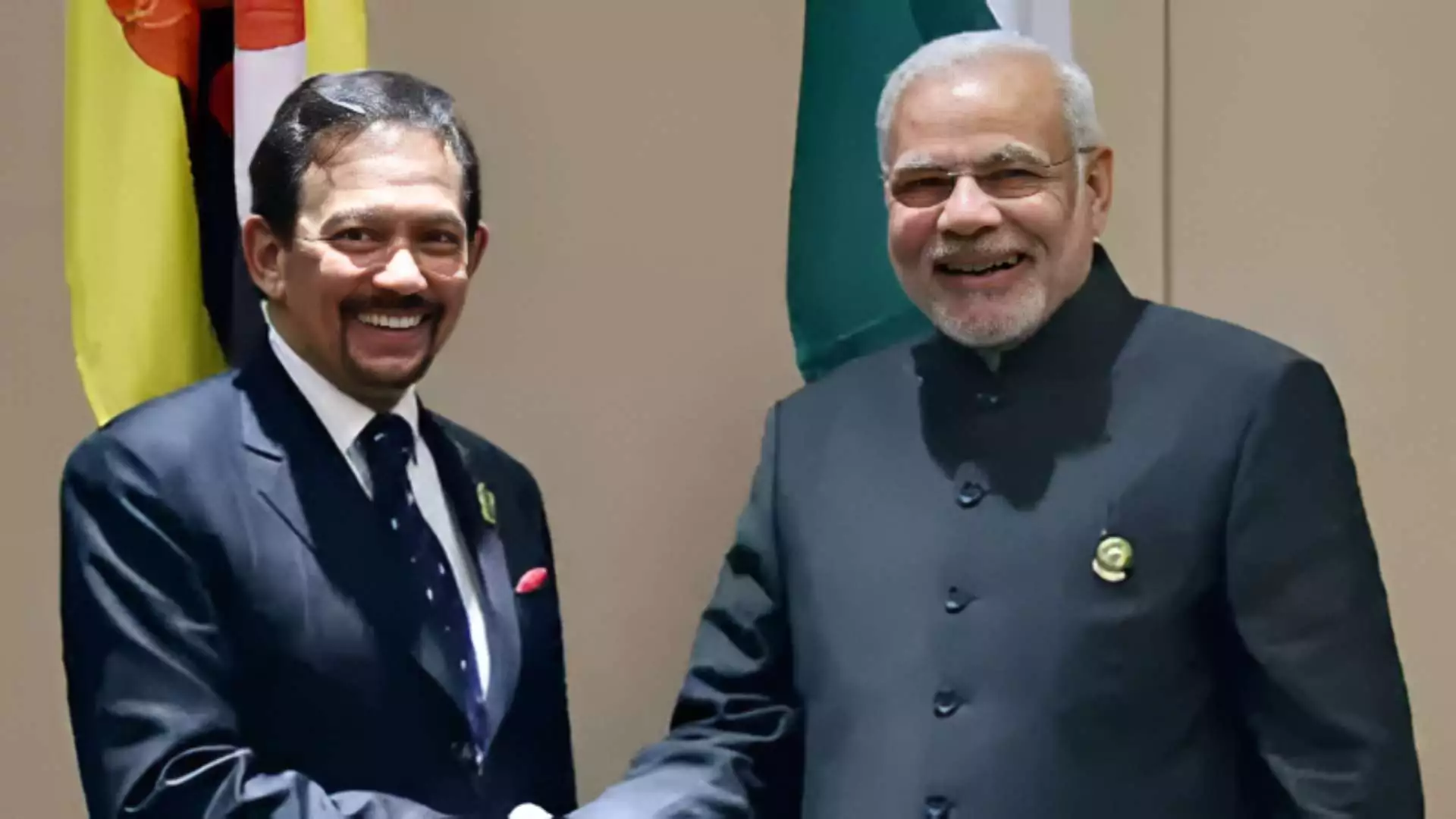Prime Minister Narendra Modi has embarked on a historic visit to Brunei, marking the first time an Indian Prime Minister has toured the Southeast Asian nation. The visit comes at the personal invitation of Sultan Hassanal Bolkiah, Brunei’s 29th Sultan, and emphasizes Brunei’s growing strategic importance under India’s Act East Policy. This landmark tour aims to bolster bilateral ties and explore new avenues of cooperation between the two nations.
Brunei: A Small Nation with Strategic Significance
Brunei Darussalam, commonly known as Brunei, is a small but strategically located country on the island of Borneo in Southeast Asia. Covering just 5,765 square kilometres, it is smaller than several Indian states, such as Sikkim. The capital city, Bandar Seri Begawan, is home to nearly 200,000 of Brunei’s 455,885 residents, according to the latest 2023 census data.
The nation is ruled by one of the world’s longest-reigning monarchs, Sultan Hassanal Bolkiah, who ascended the throne in 1967. Following Brunei’s independence from Britain in 1984, Bolkiah assumed the role of Prime Minister as well. Despite its modest size, Brunei boasts immense wealth, thanks largely to its abundant oil and natural gas reserves, which have significantly contributed to the Sultan’s fortune.
Also Read: PM Modi’s Historic Brunei Visit: Highlights Include Tour of Sultan Omar Ali Saifuddien Mosque
The Wealth and Opulence of Sultan Hassanal Bolkiah
Sultan Hassanal Bolkiah, often recognized for his extravagant lifestyle, was once considered the richest man in the world during the 1980s. Forbes estimates his current net worth at over Rs 1.4 lakh crore, primarily derived from the nation’s lucrative oil and gas industry. His official residence, the ‘Istana Nurul Iman,’ is the world’s largest palace, spanning a staggering 2 million square feet. Built in 1984 at an approximate cost of Rs 50,000, the palace is a symbol of opulence, featuring a 22-carat gold dome, 1,700 rooms, 250 bathrooms, five swimming pools, and a garage housing more than 200 vehicles.
The Sultan’s luxurious lifestyle extends beyond his palace walls. His personal collection includes over 700 luxury cars, including 300 Ferraris and approximately 500 Rolls-Royces, collectively valued at over $5 billion. He also owns a lavish Boeing 747 private jet adorned with gold and maintains stables with around 200 horses, showcasing his penchant for grandiosity.
Strict Sharia Law and International Criticism
Brunei is known for its stringent enforcement of Sharia law, which includes severe punishments for crimes such as adultery and theft. In 2014, the nation adopted these laws, which sparked international condemnation in 2019 when they were expanded to include the death penalty by stoning for adultery and same-sex relations. The strict legal code has drawn significant global criticism, though Brunei has maintained its stance on these laws.
India’s Strategic Interests in Brunei
Despite its small size, Brunei plays a pivotal role in India’s strategic calculations, particularly in the context of the Indo-Pacific region. The nation’s vast reserves of oil and natural gas are critical to its economy, with India investing approximately $270 million in Brunei’s hydrocarbon sector. The visit by Prime Minister Modi is expected to further explore opportunities for collaboration in areas such as space technology, healthcare, and defense.
Brunei’s strategic location also holds importance for India amidst ongoing territorial disputes in the South China Sea. As India continues to strengthen its presence and partnerships in Southeast Asia, Brunei’s support could prove crucial in counterbalancing China’s influence in the region.
Looking Ahead: Expanding Bilateral Ties
Prime Minister Modi’s visit to Brunei marks a significant step in deepening India’s engagement with Southeast Asia. The trip is expected to open new doors for cooperation and reaffirm India’s commitment to its Act East Policy, which seeks to enhance economic and strategic relations with East Asian nations. As both countries explore expanded ties, the visit serves as a reminder of the growing importance of small but strategically positioned nations like Brunei in the larger geopolitical landscape.
Must Read: Indian Envoy Highlights India-Brunei’s Civilizational Ties Ahead of PM’s Visit























